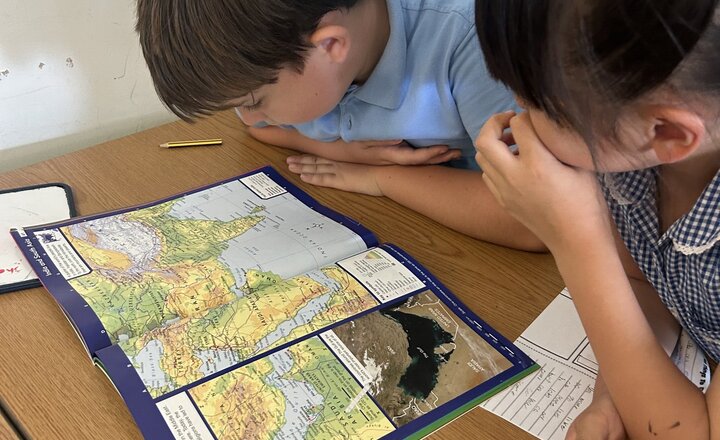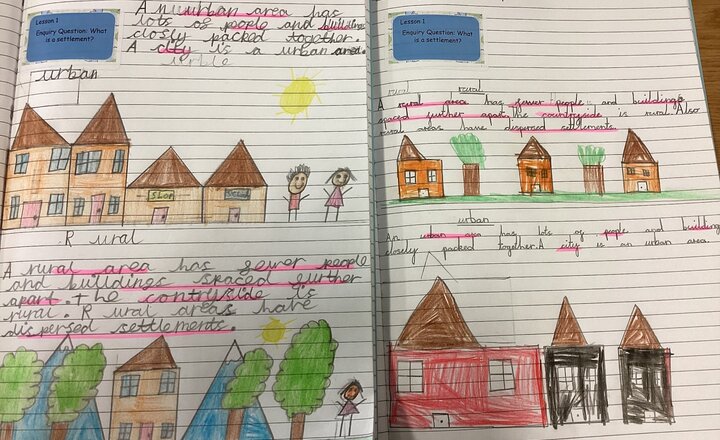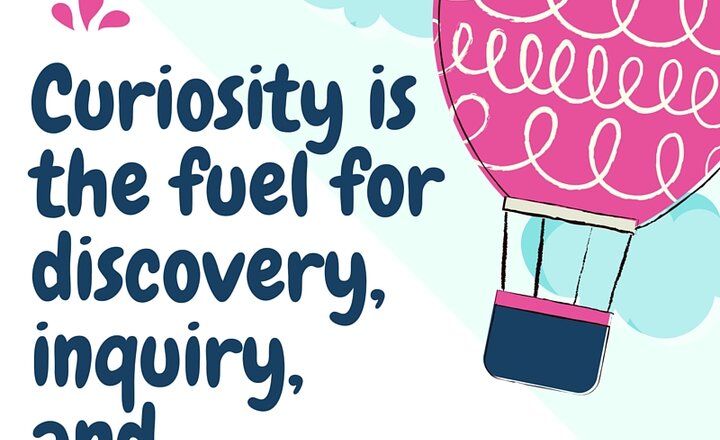Geography

'The study of Geography is more than just memorising places on a map, it is about understanding the complexity of our world, appreciating the diversity of the cultures that exist across continents. And in the end it's about using all that knowledge to help bridge divides and bring people together.' - Barack Obama
At Chapelford, geography is an exciting subject that the children thoroughly enjoy. We aim to fuel all the children’s curiosity about the world that we live in and help them to develop the knowledge and skills they need to be a true geographer. Through the well-designed curriculum that we deliver, we inspire pupils to explore many different countries around the world.
Intent
At Chapelford, we are passionate about creating geographers of the future. Our geography curriculum is designed and delivered to inspire curiosity, develop understanding, and nurture a love about different places and cultures around the world.
I’m Miss Green, the geography lead, and I have always loved travelling the world and learning about the different cultures. When I was younger, I was always curious about the world around me and would ask many questions when experiencing new cultures or the human and physical features around the world. It is the same curiosity that we aim to spark in every child here at Chapelford.
Through our well-sequenced and carefully structured curriculum, children build upon their geographical knowledge and skills year after year. We explore key geographical concepts such as human features, physical features, and fieldwork, enabling pupils to think like a true geographer and ask questions to enquire about a topic further.
Here at Chapelford we aim to ignite the children’s passion for geography through engaging lessons, enrichment opportunities, and real-life experiences — including having the opportunities to complete fieldwork in their local area. By doing so, we help children deepen their understanding about what has shaped their immediate environment.
Our goal is for every child to leave Chapelford with an understanding of the world in which we live, and the confidence to explore any lines of enquiry further. However, above all, we want our children to leave Chapelford at the end of their primary school career loving learning about geography.
Implementation
Here at Chapelford, our geography curriculum is mapped out from EYFS to year 6 in a way that ensures there is a clear progression of knowledge and skills throughout the different year groups which allows them to build upon what they have learnt in previous year groups.
We place a strong emphasis on geographical vocabulary, ensuring that all our pupils learn, use and apply the key terms needed to deepen their understanding – this is supported by revisit and review activities that are embedded into our lesson structure which supports the children in recalling previously taught concepts.
Our weekly lessons have an enquiry question focus, which supports pupils thinking and learning when building towards answering the overall enquiry question for each unit. All the learning is recorded in the children’s individual geography learning books which is evidence of the children’s engagement within lessons. Within the books, a range of different activities can be found from enquiry-based field work, practical learning, in depth diagrams linked to the enquiry question and extended pieces of writing to embed the children’s learning.
Each topic has a game changer focus who is a significant individual within the geographical world whose actions or influence has a lasting impact. This helps the children to understand and link their learning to people who have impacted the world we live in today in different ways – early explorers, charity workers and inventors.
At the beginning of each lesson, pupils take part in a ‘revisit and review’ activity designed to refresh prior knowledge and build on their already existing knowledge. We have also enriched our curriculum through a range of different opportunities: field work, visitors into school, residential trips and hands-on activities.
Our approach ensures that learning is accessible and inclusive for all pupils, with lessons carefully adapted to meet the needs of every learner.
Impact
At Chapelford, our geography curriculum provides children with the opportunity to deepen their own understanding of the world around them. All pupils leave our school in year 6 with a secure understanding of geographical concepts and the ability to use topic specific vocabulary.
Through regular opportunities to revisit and apply prior knowledge, children have the ability to make meaningful connections across the different geographical skills. This provides our children with the confidence to talk passionately about their learning within the geographical curriculum and demonstrate curiosity, enthusiasm, and pride in their work. They enjoy sharing their knowledge, discussing their opinions, and explaining how and why things impact the world in which we live.
By the end of their journey at Chapelford, our pupils are curious, informed, and reflective geographers who:
- Have a strong understanding of key geographical concepts, significant figures, and skills.
- Have the ability to use geographical vocabulary confidently and accurately.
- Have confidence when using their fieldwork skills to create an enquiry question and find out the answers to their own questions about their local area.
Most importantly, they love learning about geography and carry that sense of wonder and curiosity with them as lifelong learners.
Find Out More
At Chapelford, we encourage children to continue exploring geography outside of school. There are many different ways that they can find out more about the world in which they live — through books, websites, and local places that bring our geography curriculum to life.
Websites to Explore
- Geography - BBC Bitesize
- The Ultimate Map Quiz Site - Seterra
- \World Games | World Geography Games Online
- DigitalAtlasProject.net
Books to Read
Places to Visit
Geography is what has shaped the world around us – both physically and culturally. By exploring these books, websites and places, you can continue to ask questions, make discoveries, and keep your love of geography alive!
Click on the National Curriculum image for the National Curriculum programme of study for Geography.
PGQM Bronze Award 2023-2026

Related News



